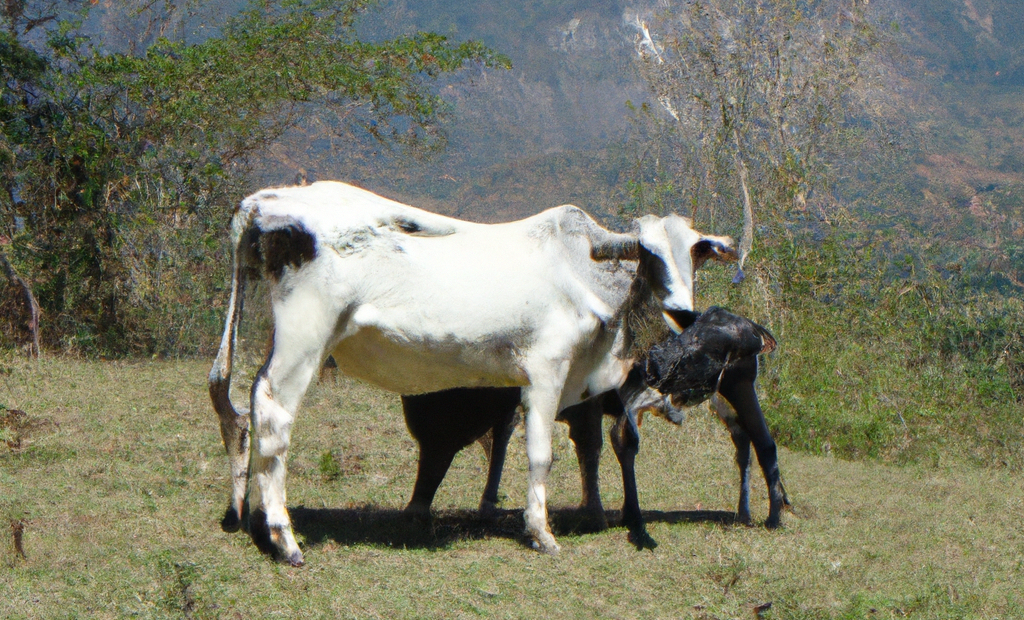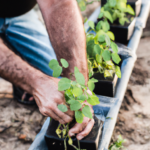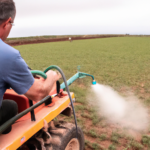Auxiliary fauna in organic farming plays an essential role in weed control and contributes to soil fertility. Biofertilizers, biologically-based agricultural products, promote auxiliary fauna and biological weed control, while traditional chemical fertilizers can be harmful to biodiversity. Organic farming reduces the dependence on chemical herbicides and increases the efficiency of weed control, resulting in more sustainable and environmentally friendly agriculture.
Organic farming has experienced significant growth in recent decades in response to the need to produce food in a more sustainable and environmentally friendly way. In this context, the interaction between auxiliary fauna and weed control plays a crucial role. The animals and microorganisms that make up the auxiliary fauna contribute significantly to maintaining the balance of the agricultural ecosystem, helping in tasks such as pollination, decomposition of organic matter, or pest and weed control. This article is divided into four sections, which address everything from the function of auxiliary fauna in organic farming, through the role of fertilizers and biofertilizers in this interaction, to the use of agricultural products designed to enhance this beneficial symbiosis. The benefits that this interaction can provide in terms of productivity and sustainability in organic farming are also detailed.
- 1. "The role of auxiliary fauna in organic farming: weed control and beyond"
- 2. "The role of fertilizers and biofertilizers in the interaction between auxiliary fauna and weed control"
- 3. "Agricultural products: Improving the interaction between auxiliary fauna and weed control"
- 4. "Benefits of the interaction between auxiliary fauna and weed control in organic farming."
1. "The role of auxiliary fauna in organic farming: weed control and beyond"
Auxiliary fauna plays a crucial role in organic farming, especially in weed control and other vital functions. These organisms, which include insects, birds and small mammals, contribute to maintaining the balance of the agricultural ecosystem, helping to control pest and weed populations that can negatively affect crop yields. In addition, some of these auxiliaries also participate in the decomposition and recycling of organic matter, contributing to the formation of natural fertilizers and biofertilizers that enrich the soil and replace chemical products for agriculture. Thus, auxiliary fauna not only helps to control weeds in an ecological way, but also plays a role in improving soil fertility and promoting sustainable and environmentally friendly agriculture.
2. "The role of fertilizers and biofertilizers in the interaction between auxiliary fauna and weed control"
Fertilizers and biofertilizers play a crucial role in the interaction between auxiliary fauna and weed control. In an organic farming scenario, the use of fertilizers can alter this balance, as some chemical components could negatively affect beneficial fauna. On the other hand, biofertilizers, which are biologically-based agricultural products, favor the proliferation of this auxiliary fauna, since they are usually less harmful to these species and, in turn, stimulate plant growth. By favoring auxiliary fauna, their role in weed control is enhanced, since many of these animals feed on the pests that threaten crops, establishing a natural and sustainable biological control.
3. "Agricultural products: Improving the interaction between auxiliary fauna and weed control"
Adopting organic farming products is a crucial step towards improving the interaction between weed control and by-products. Traditional chemical fertilizers can be detrimental to biodiversity, while biofertilizers and other environmentally friendly agricultural products help foster a balanced ecosystem. These products support the life of by-products, such as beneficial insects and soil microorganisms, which play a vital role in suppressing weeds. At the same time, organic farming reduces the dependence on chemical herbicides, which in turn decreases weed resistance to these products. Ultimately, choosing organic farming products benefits by-products and improves the efficiency of weed control.
4. "Benefits of the interaction between auxiliary fauna and weed control in organic farming."
The interaction between auxiliary fauna and weed control offers significant benefits in organic farming. One of the main advantages is the decreased dependence on fertilizers and chemicals for agriculture, which can often be harmful to the environment. Instead, the use of biofertilizers, i.e. living organisms that help enrich the soil naturally, is encouraged. These biofertilizers can be provided by auxiliary fauna, such as certain insects and microorganisms, which contribute to the decomposition of organic matter and the release of essential nutrients for plants. In addition, auxiliary fauna can help control weeds, reducing the need for chemical herbicides. Therefore, the combination of auxiliary fauna and weed control can result in more sustainable and ecological agriculture.
The interaction between auxiliary fauna and weed control plays an indispensable role in organic farming, providing significant benefits for the health and productivity of the agricultural ecosystem. Fertilizers and biofertilizers are vital tools that can be used to encourage and enhance this interaction, creating a more conducive environment for auxiliary fauna and more effective weed control. Furthermore, the use of agricultural products designed to support this interaction can bring even greater benefits. In summary, promoting a healthy synergy between auxiliary fauna and weed control in organic farming is essential for the development of a sustainable, productive and environmentally friendly agricultural system.


